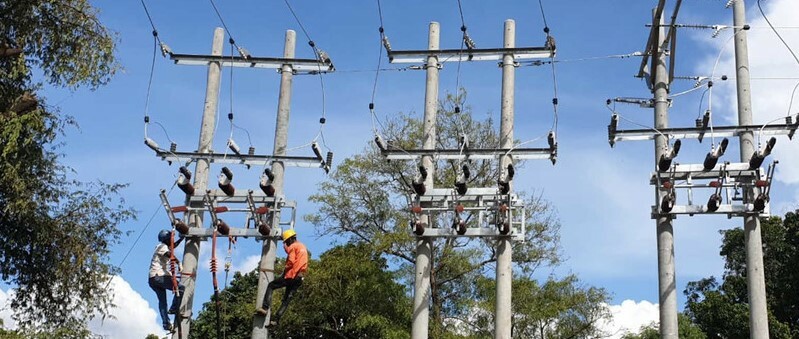Residents in South Sudan’s capital Juba have expressed concern over the exorbitant electricity prices levied by the Juba Electricity Distribution Company (JEDCO).
JEDCO was formed through a public-private partnership between Ezra Construction and Development
Group (ECDG) and the South Sudan Electricity Corporation (SSEC) and distribute power generated by ECDG.
Last November the power distributor announced plans to do routine maintenance and announced a load shedding program.
However, several residents sounded out by Radio Tamazuj accused the company of not delivering quality services.
Joseph Ladu, a resident of Khor William who owns a retail shop in Nyakuron Market, said he is charged SSP 10,000 daily for power at his place of business yet the supply is intermittent.
“I have a shop in Nyakuron and every day I am paying 10,000 for power and the power is not even consistent,” he said. “I only have two freezers and one socket for charging and two light bulbs.”
Ladu also said that the power distributor services a few areas of the city and does not reach the outskirts of town.
Another city dweller, Joe Felix, who resides in Gudele Block 9, said most customers are complaining of inconsistent power supply.
“When JEDCO came, it used to be good but these days it is on and off, and on top of that, most of the customers pay money but they do not enjoy the service,” he said. “According to my observation, JEDCO is not doing enough for the citizens of South Sudan.
Meanwhile, Zachariah James who resides in Munuki however said the supply of electricity in his area is fine but that the monthly charges are too high and frustrate most clients.
“JEDCO’s services are not bad but the only problem is the monthly charges are too much,” he said. “When you pay SSP 5,000 for electricity, it does not last.”
A Sudanese businessman, Salah Abdu, who plies his trade in Juba’s Nyakuron Market, the power company started well but has now increased tariffs beyond the reach of the common man.
“Those days electricity supply was very good but now it is really expensive. When they realized that there are now many customers, services immediately changed.” Abdu said. “According to them (JEDCO), the electricity is charged in dollars yet we do not know the relation between power and dollar. Even then, the power always suddenly goes off.”
An Ethiopian businessman who only identified himself as Gabryesus said he spends SSP 70,000 on electricity monthly.
“The power these days is throughout. However, the consumption is too much” he said.
“Those days I would load power for SSP 30,000 a month but now it costs me 70,000,” he said.
JEDCO’s public relations manager, Joseph Thomas, when contacted however refuted claims of outages and said they happened only when they were carrying out maintenance.
“I am a bit surprised because if you said it was between last November and this January, it would have been correct because we were doing shedding because of the process of maintaining the generators,” he said. “We are using these four generators for three years conservatively without them being maintained but according to the company which manufactured them, the generators have to be serviced regularly.”
“After the service in February, there have not been any power cuts and or load shedding unless there is a fault or a pole falls or is knocked,” Thomas added.
When asked about the public’s complaint about exorbitant tariffs, he said there are various categories of pricing.
“We have three categories in our system namely domestic, commercial, and government customers which includes schools, hospitals, and other government Institutions,” he said. “For instance, for domestic use, the tariffs were set in dollars as the standard currency and a unit is 0.316 cents, for commercial it is 0.440 cents, and for governmental institutions, it is 0.336.”
According to Thomas, customers feel a pinch when the dollar gains against the local currency.
He says JEDCO has no immediate plans to expand its area of coverage but can connect new customers if they pay for the cost of poles, meters, and other equipment required.




